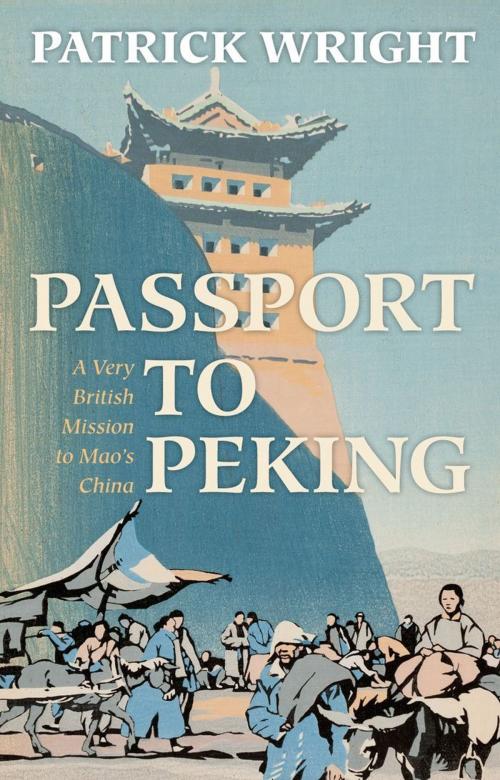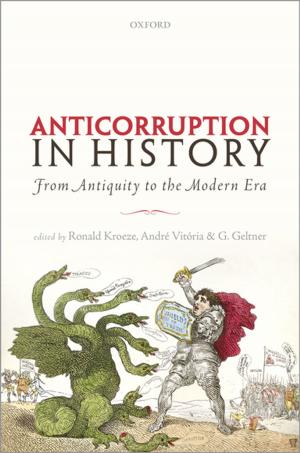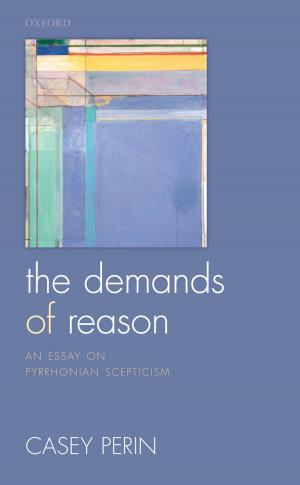Passport to Peking
A Very British Mission to Mao's China
Nonfiction, History, British, Art & Architecture, General Art| Author: | Patrick Wright | ISBN: | 9780191624735 |
| Publisher: | OUP Oxford | Publication: | October 28, 2010 |
| Imprint: | OUP Oxford | Language: | English |
| Author: | Patrick Wright |
| ISBN: | 9780191624735 |
| Publisher: | OUP Oxford |
| Publication: | October 28, 2010 |
| Imprint: | OUP Oxford |
| Language: | English |
President Nixon's famous 1972 trip has gone down in history as the first great opening between the West and Communist China. However, eighteen years previously, former prime minister Clement Attlee had also been to China to shake Chairman Mao by the hand. In the second half of 1954, scores of European delegations set off for Beijing, in response to Prime Minister Chou En-lai's invitation to 'come and see' the New China and celebrate the fifth anniversary of the Communist victory. In this delightfully eclectic book, part comedy, part travelogue, and part cultural history, Patrick Wright uncovers the story of the four British delegations that made this journey. These delegations included an amazing range of people from the political, academic, artistic, and cultural worlds of the day: Clement Attlee and his former Health Minister, Nye Bevan; dapper and self-important philosopher A. J. Ayer; the brilliant young artist-reporter Paul Hogarth; poet and novelist Rex Warner (a former Marxist who had just married a Rothschild); and the infuriatingly self-obsessed Stanley Spencer who famously lectured Chou En-lai on the merits of his hometown of Cookham, but who emerges as the unlikely hero of the story. Using a host of previously unpublished letters and diaries, Patrick Wright reconstructs their journey via the USSR to the New China, capturing the impressions - both mistaken and genuinely insightful - of the delegates as they ventured behind both the iron and the bamboo curtains. Full of comic detail of the delegates and their interactions, it is also a study of China as it has loomed in the British mind: the primitive orient of early western philosophy, a land of backwardness that was used to contrast with the progressive dynamism of Victorian Britain, as well as the more recent allure of revolutionary transformation as it appeared in the minds of twentieth century Britons.
President Nixon's famous 1972 trip has gone down in history as the first great opening between the West and Communist China. However, eighteen years previously, former prime minister Clement Attlee had also been to China to shake Chairman Mao by the hand. In the second half of 1954, scores of European delegations set off for Beijing, in response to Prime Minister Chou En-lai's invitation to 'come and see' the New China and celebrate the fifth anniversary of the Communist victory. In this delightfully eclectic book, part comedy, part travelogue, and part cultural history, Patrick Wright uncovers the story of the four British delegations that made this journey. These delegations included an amazing range of people from the political, academic, artistic, and cultural worlds of the day: Clement Attlee and his former Health Minister, Nye Bevan; dapper and self-important philosopher A. J. Ayer; the brilliant young artist-reporter Paul Hogarth; poet and novelist Rex Warner (a former Marxist who had just married a Rothschild); and the infuriatingly self-obsessed Stanley Spencer who famously lectured Chou En-lai on the merits of his hometown of Cookham, but who emerges as the unlikely hero of the story. Using a host of previously unpublished letters and diaries, Patrick Wright reconstructs their journey via the USSR to the New China, capturing the impressions - both mistaken and genuinely insightful - of the delegates as they ventured behind both the iron and the bamboo curtains. Full of comic detail of the delegates and their interactions, it is also a study of China as it has loomed in the British mind: the primitive orient of early western philosophy, a land of backwardness that was used to contrast with the progressive dynamism of Victorian Britain, as well as the more recent allure of revolutionary transformation as it appeared in the minds of twentieth century Britons.















